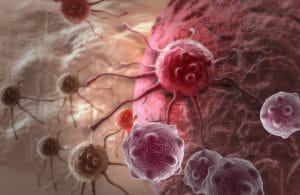Cancer Detection and the Consequences of Misdiagnosis
 More than 1.6 million patients in the U.S. each year are given a cancer diagnosis, according to the American Cancer Society. As an aggressive medical condition, cancer often spreads quickly. Survival of the condition often depends on early detection and effective treatment with the goal of removing the malignancy from the body.
More than 1.6 million patients in the U.S. each year are given a cancer diagnosis, according to the American Cancer Society. As an aggressive medical condition, cancer often spreads quickly. Survival of the condition often depends on early detection and effective treatment with the goal of removing the malignancy from the body.
In too many cases, cancer deaths result from a misdiagnosis or complete failure to diagnose the condition until later stages of the disease. Early cancer detection can mean life instead of death for the patient. Therefore, doctors and medical practitioners who fail to properly diagnose this disease may be held liable for medical negligence and malpractice.
Reasons for and results of cancer misdiagnosis
Failure to diagnose, delayed diagnosis, and misdiagnoses occur all too commonly with the following types of cancer:
- Breast cancer
- Colon cancer
- Prostate cancer
- Cervical cancer
- Ovarian cancer
- Lung cancer
- Uterine cancer
- Testicular cancer
A patient with cancer may come in for medical treatment exhibiting a range of symptoms such as fatigue, fever, unusual weight loss, coughing, dizziness, shortness of breath, among others. When a cancer patient is incorrectly diagnosed, the doctor may treat the patient for a common illness such as the common cold or flu instead of ordering tests to rule out the worst-case scenarios, including cancer.
Unfortunately, when the patient does eventually return with graver symptoms, the cancer has progressed to a stage that makes it much more difficult to treat and eliminate. If, during the initial visit the doctor had ordered a mammogram, CT scan, x-ray, or other precautionary tests, the cancer may have been detected with effective treatment then administered.
Misdiagnoses may also occur when test results are misinterpreted. For instance, medical professionals may discover a tumor in the patient. A test for malignancy may actually indicate the tumor is cancerous, but the lab technician may fail to read the results properly and concludes it is benign. This type of error and others can prevent a patient from getting the medical treatment he or she needs, allowing the patient’s health to deteriorate until the actual condition is finally discovered.
Establishing the harm of delayed diagnosis or misdiagnosis
Sometimes proving the liability of a physician must include a determination that a timely diagnosis provided by the physician would have resulted in a significantly better health outcome for the patient.
Some cancers, such as ovarian, pancreatic, and small-cell lung have a poor prognosis even when detected early. In these cases, collecting damages in a medical malpractice lawsuit can be difficult.
Other types of cancers such as prostate, breast, and colon are, in general, highly treatable in their early stages. If the cancer metastasizes, i.e. spreads to other organs and the blood, options for treatment and prognosis for survival are greatly diminished.
If you never had the chance to benefit from an early diagnosis of your serious medical condition, an experienced NJ medical malpractice attorney can pursue the compensation you deserve for your losses. This compensation may be provided for your lost income, medical expenses, diminished life span, pain and suffering, or reduced quality of life.
If you or a loved one is experiencing a worsened health condition as a result of a misdiagnosis, our experienced New Jersey medical malpractice attorneys at Eichen Crutchlow Zaslow, LLP can help. We have years of experience representing people whose cancer was misdiagnosed. Call us today at 732-777-0100 or use our contact form to schedule an initial, free consultation. We serve clients in Red Bank, Edison, Toms River, and throughout New Jersey with compassionate and vigorous legal representation.

Eichen Crutchlow Zaslow, LLP has purposely remained small in size, because it is important to us that we get to know our clients and their needs. Larger NJ injury firms may churn out case after case, but that’s not how we operate. Partners Barry Eichen, William Crutchlow, and Daryl Zaslow have created a firm with the resources to handle complex litigation, and a team that takes your case personally.
Find out more about Eichen Crutchlow Zaslow, LLP
